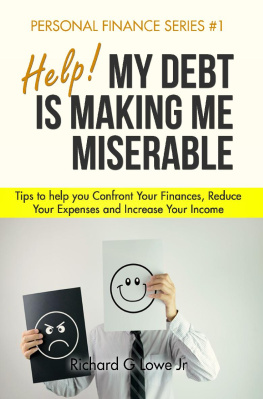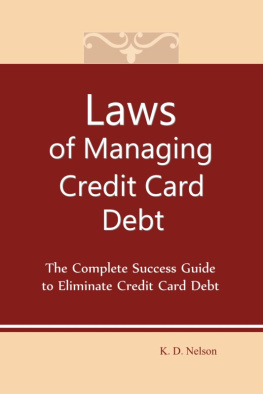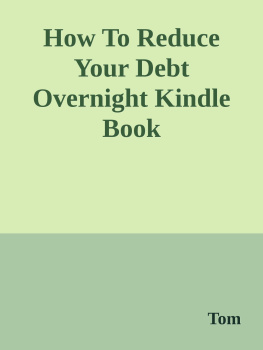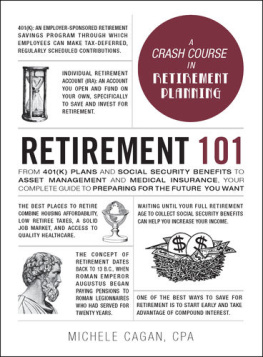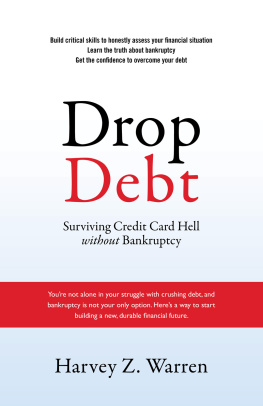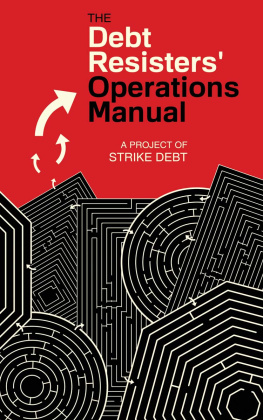Title Page
YOU CAN BE DEBT FREE
A Book By
Sobaca Ltd
Publisher Information
You Can Be Debt Free published in 2010 by
Sobaca Limited
5 Fleet Place
EC4M 7RD
www.sobaca.com
Digital Edition converted and distributed by
Andrews UK Limited
www.andrewsuk.com
This book is sold subject to the condition that it shall not, by way of trade or otherwise, be lent, resold, hired out or otherwise circulated without the publishers prior written consent in any form of binding or cover other than that in which it is published, and without a similar condition being imposed on the subsequent purchaser.
Copyright Sobaca Limited
Introduction
Finding yourself in debt is definitely not fun. How you got to be in that position is obviously important to understand and the first step to getting out of debt is realising you have a problem. Once you have done that you can begin to identify the exact causes of your current predicament before moving forward to solving your problems. What doesnt help is being criticised. You are probably suffering enough already but the fact you are listening now clearly indicates you have a strong desire to overcome your present difficulties and thats a good start. The helpful advice that follows should help you to better understand some of the practical solutions available to you.
You are certainly not alone in struggling to make ends meet and, while many are too embarrassed to seek out help, it is available and we hope that you will find this presentation a positive aid in your efforts to rebalance your finances. It can be done and you can be the person to do it.
Ours is a programme that includes information on some of the consequences that are attached to different types of debt. It is crucial to know what you are facing as it may not be as bad as you think. A lot of anxiety and worry is predicated on the unknown and we hope to help put certain things into context for you.
Now that we are ready, lets begin by looking at some facts surrounding living expenses.
Chapter 1
The cost of living
According to recent news reports, it seems that the cost of living in the UK has fallen for the first time in two years. The Office for National Statistics points to falling food and non-alcoholic drink prices as being the main reason for this, with prices for other basics such as meat, bread and vegetables also falling.
However, despite this fall in the cost of living, Western Europe still remains the most expensive region in the world to live.
Further reports reveal that the average British household now pays around 18,000 a year in domestic bills around a million pounds over a lifetime. With unemployment figures now at their highest since the mid 1990s, currently standing at around 2,500,000, and more than 5,500 UK businesses falling into insolvency in the first quarter of 2009, the future for many isnt looking too bright.
For most of us, a large percentage of our income is spent on rent or mortgage payments, followed by obligations to pay our credit cards, utility bills, council taxes, insurances and car payments. One leading price comparison site recently revealed that almost half of us are struggling to pay our bills as a direct result of the recession we are currently in.
As you might expect, there is a north/south divide, with statistics revealing the division is widening. The richest fifth of the UK population now boast a pre-tax income that is 16 times greater than that of the poorest fifth. This is partly due to salaries of the richest increasing at a faster rate than those further down the social scale those who still have a job, that is. Reports indicate around 2.7 million British workers have been forced to take a second job just to make ends meet.
Two of the traditionally more cash-strapped areas of the population pensioners and students are particularly feeling the pinch.
An EU report recently stated that the UK has the fourth highest level of poverty in Europe among the over 65s, coming just behind cash-strapped Romania. In 2007, nearly a third of our pensioners were living in poverty, matching the statistics of Lithuania.
The charity, Age Concern, has discovered one in five people aged over 60 regularly skipping meals to save money on food, while two-fifths are struggling to afford lifes essentials.
Government taxes, including the forthcoming green tax, which will add another 230 each year to energy bills, and other household bills, mean that many pensioners have little money left at the end of the week. Government means-tested schemes, whereby pensioners are forced to apply for assistance, have a low take-up as many are too proud to do so and others find the paperwork confusing and difficult.
At the other end of the age scale, parents are becoming increasingly responsible for financing their children while they are in higher education providing around 61% of their weekly income, compared to about 58% last year. A students average weekly income amounts to approximately 114, while the city offering the lowest weekly living costs is Birmingham, at 171; you dont need to be a maths graduate to figure out the huge deficit.
To top up their income, most students are forced to take part-time jobs, almost a third working for more than 20 hours each week.
Despite the widely reported fall in the cost of living in the UK, its easy to see why our finances continue to spiral out of control, and debt management companies and loan providers continue to thrive.
In the next chapter we will examine some of the influences that encourage us to take on debt.
Chapter 2
How the other half live
Todays media is full of celebrities and the wealthy showing us just how the other half lives. Programmes such as MTVs Cribs and Fantasy Homes , portray glamorous lifestyles revolving around fashion, social events and material possessions.
The desire to forget our daily lives and immerse ourselves in glitz and prestige can be overwhelming; many of us shop and buy items which we think will, at least partly, fulfil those needs regardless of how much disposable income we actually have.
A recent investigation carried out by The Insolvency Service discovered that women have now overtaken men for the first time in the number of young bankrupts, with over 1,500 women and 1,200 men under the age of 24 being declared bankrupt last year. The report revealed that women in this age group are more inclined to want to prove their independence by taking on mortgages which they often cant afford and purchasing luxury items in an attempt to emulate celebrities.
This has of course, all been made possible by our financial institutions enthusiasm to lend us money, regardless of age, income or previous credit history.
One young woman, featured in the national press, described how her first credit card landed on the doormat on her 18th birthday, with a limit of 1,200 almost 10% of her annual salary. Using it on regular shopping sprees, the card reached its limit within a month so she simply took out another. During this time, she was also issued with store cards and eventually found herself shopping for expensive handbags every day, pretending she was living the lifestyle of the rich and famous. That is, until four years later, when she found herself over 20,000 in debt and a bailiff knocking at her door.
Financial providers deliberately target young people who are just turning 18 and send them an application form for credit. Although terms and conditions vary between lenders, most say that acceptance of an application depends on a persons age, income and credit rating. This doesnt explain, however, how an eighteen year old, living at home or in full-time education and with no salary or credit history, is able to successfully apply for credit.




